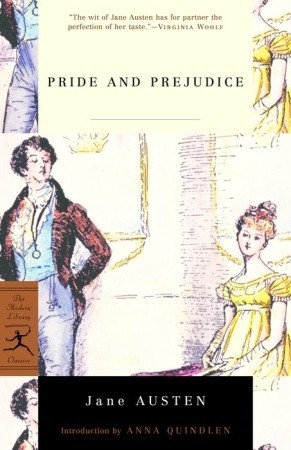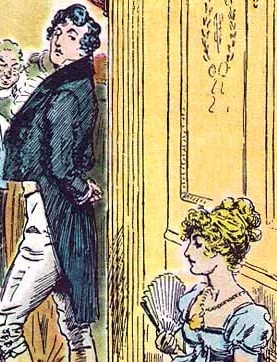by Julie Reynolds, Director of Curriculum
In the Charlotte Mason model, one of the give-away characteristics of a living book is its presentation of living ideas. As Christians, our ultimate source of truth is the Word of God, but cannot good books enhance Christian ideals, in a classical sense, as we read of the good, the true, and the beautiful?
I recently re-read Jane Austen’s Pride and Prejudice and was reminded again of the way ideas can capture my senses, conscience, and imagination. I was surprised by the way my heart was convicted and taught by the characters in this book.
Here are some ideas I’ve reflected on:
Why do we love the Victorians? Their propriety, reserve, and commitment to the highest standards of behavior and manners take us to a world of decency and civility that is often far from what we experience today.
Kindness, respect and generosity to others was valued and expected. To go further than that, if these mores weren’t upheld, there was heartfelt rebuke from a friend. Who can forget Mr. Knightly’s words to Emma in another Austen novel: “Badly done, Emma, badly done”? This is in response to the young woman’s treatment of an elder of lower station. His words in the book are pointed, yet loving:
This is not pleasant to you, Emma – and it is very far from pleasant to me; but I must, I will, I will tell you truths while I can, satisfied with proving myself your friend by very faithful counsel, and trusting that you will some time or other do me greater justice than you can do now.
How often do I prove myself a true friend to another by speaking the truth in love to them or by receiving a truth another has shared with me? How do we define true friendship?
In Pride and Prejudice, we find the eldest Bennett daughter, Jane, suddenly left by a suitor with whom she was clearly in love and who seemed clearly in love with her. While her sister Elizabeth fumes on her behalf and tries to persuade her that the man has been pressured by his sisters, Jane holds firm in not even wishing to think evil of another:
I am not ashamed of having been mistaken – or, at least, it is slight, it is nothing in comparison of what I should feel in thinking ill of him or his sisters. Let me take it in the best light, in the light in which it may be understood.
She chooses to believe that she has misread his feelings instead of blaming and thinking ill of his sisters. The foolishness she feels from her mistake is much more bearable than the guilt of ill will or slanderous feeling toward another. How well do I take the blame of my mistakes? Do I guard my heart against slanderous thought?
On a broader level, what about reserve and privacy? Intimacy about so much pummels our senses daily through reality shows, the news, the internet, and social networks. Perhaps many things are better left unheard, unseen, or unsaid.
Though Mr. Darcy and Miss Bennett speak directly to one another and in a few cases speak words that betray heart feelings, it is only at the end of the novel (fourteen pages from the end of my copy), after securing the certainty of marriageable love, that we hear Mr. Darcy say, “…dearest, loveliest Elizabeth!”
If you’ve seen the film version with Colin Firth, you probably remember “the firework feelings” ignited with the use, finally, of her first name.
This timing is a far cry from some reality television shows where all is shared without the any commitment. Elizabeth and Mr. Darcy’s romance is a respectful intimacy that shares deeply within the boundaries of propriety. This keeps secret the joy of knowing one other as they should: just between the two. Ironically, this is a far truer intimacy than what we see today when the trivial facts and feelings of one’s life are laid bare for everyone to see.
How concerned am I about protecting the privacy of another’s personal information or feelings? Do I seek relationships with those I can trust with my own information; with those who are not concerned with the trivial but with the Truth?
Just a few musings on a “living” book. What are you reading?


